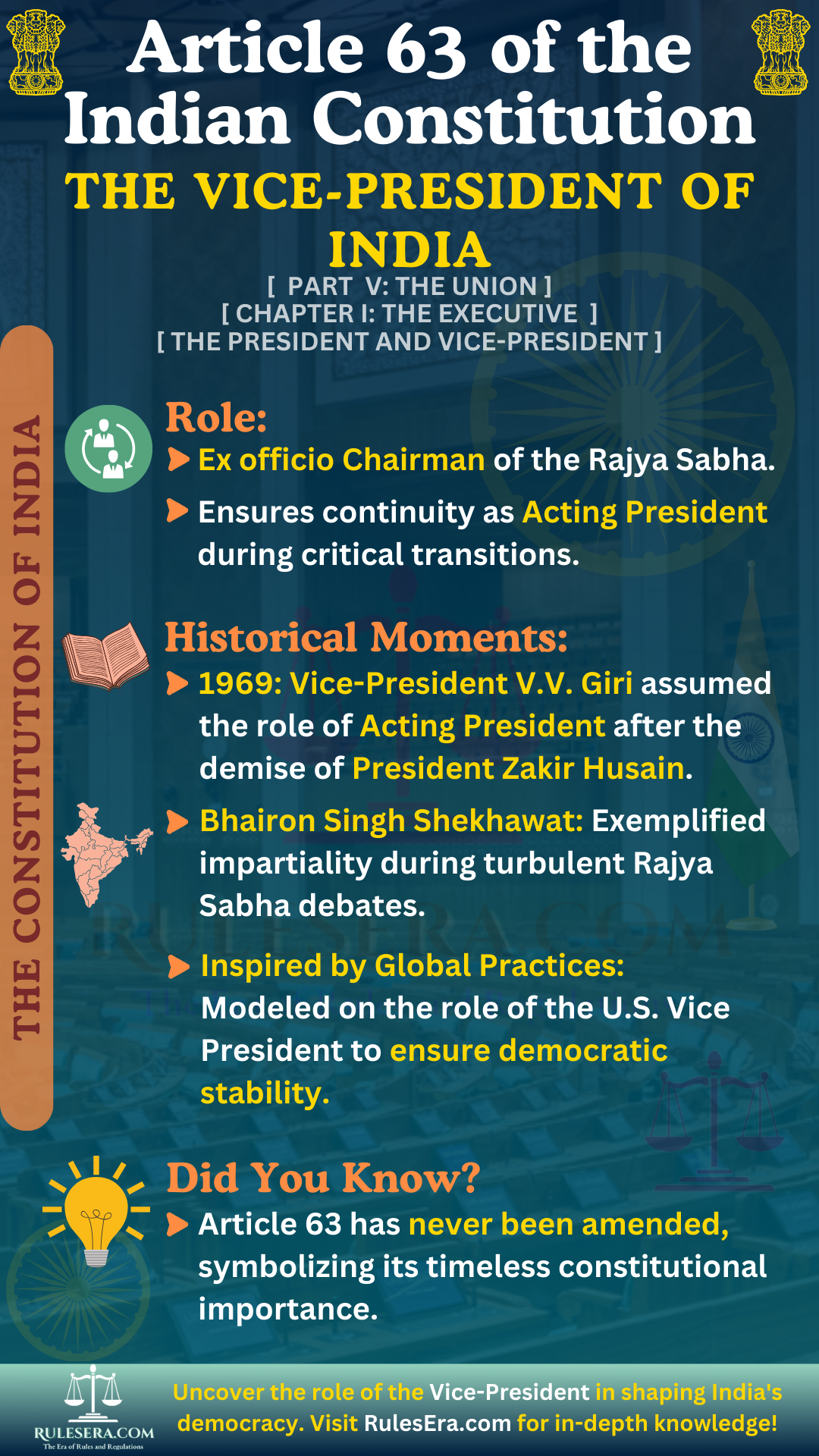Part V: The Union
Chapter I: The Executive
Article 63: The Vice-President of India

--- Original Article ---
There shall be a Vice-President of India.
Explanation
Article 63 of the Constitution of India provides for the establishment of the office of the Vice-President. This office holds significant constitutional relevance as the Vice-President plays a key role in both the executive and legislative branches of the government.
Key Provisions
- The Establishment of the Office of the Vice-President: Article 63 clearly states that "There shall be a Vice-President of India." This is a straightforward provision mandating the existence of the Vice-President as a separate constitutional entity. The Vice-President serves primarily as the ex officio Chairman of the Rajya Sabha (Council of States) and plays an important role in the legislative process, especially in case of ties in votes in the Rajya Sabha.
Amendments and Real-Life Examples
- Amendments: Although Article 63 has remained unamended, it works in conjunction with other articles, particularly Article 66, which outlines the election process of the Vice-President. The 11th Constitutional Amendment Act, 1961 indirectly affected this office by simplifying the procedure for the resignation of the Vice-President, strengthening the clarity surrounding the office.
- Real-Life Example: In 1969, when President Zakir Husain passed away, Vice-President V.V. Giri assumed the office of Acting President. Additionally, Vice-President Bhairon Singh Shekhawat’s impartial handling of Rajya Sabha debates during political turbulence showcased the significance of this office.
Historical Significance
The Vice-President’s role was inspired by similar offices in other democratic systems, particularly the U.S. Vice President. This position ensures a constitutional backup for the President, while serving as the Chairman of the Rajya Sabha, balancing the executive and legislative branches.
Legislative History
Article 63 was originally drafted as Article 52 in the draft Constitution on December 28, 1948, and incorporated into the final text without extensive deliberation during the Constituent Assembly debates.
Frequently Asked Questions (FAQs):
The Vice-President serves as the ex officio Chairman of the Rajya Sabha and plays a significant role in the legislative process, especially during tie-breaking votes.
Yes, when President Zakir Husain passed away in 1969, Vice-President V.V. Giri assumed the office of Acting President, demonstrating the Vice-President's role in ensuring continuity in governance.